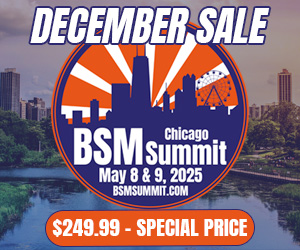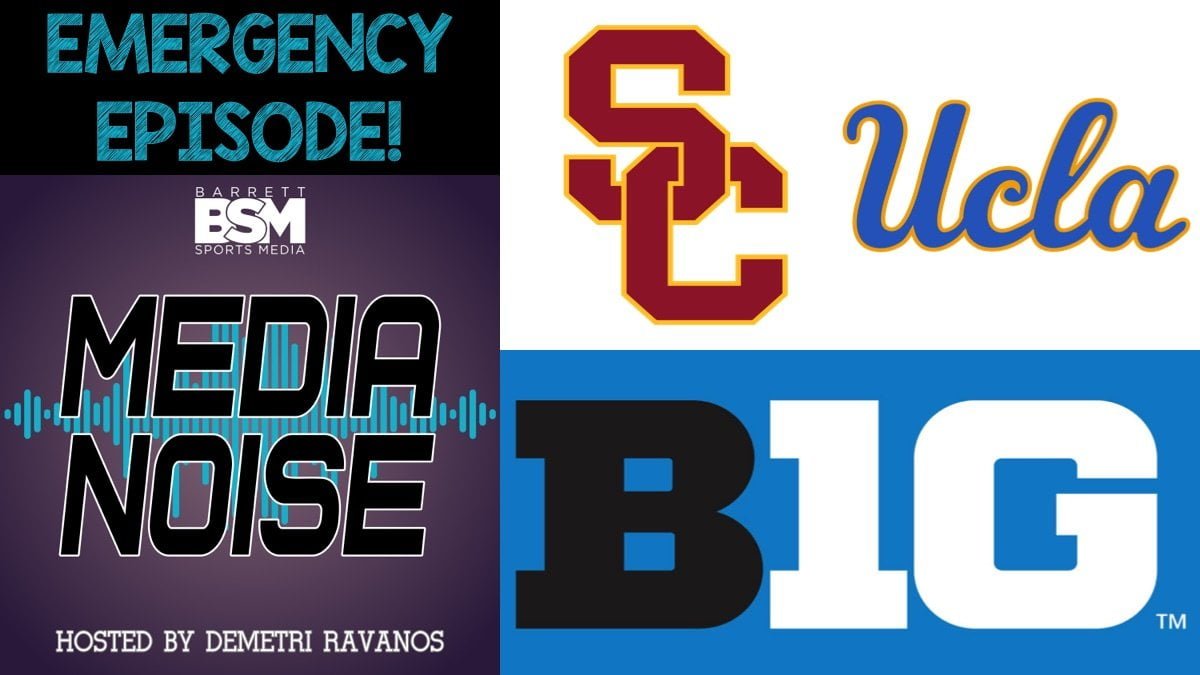I mean that as a compliment not a criticism. That’s because I’m using the term “gimmick” as it’s used in professional wrestling. There it describes a performer’s persona, how they distinguish themselves in the eyes of the audience. A gimmick can refer to the costume, a specific prop, such as a guitar or just the overall attitude. A gimmick is essentially the wrestler’s act, the thing they do to capture an audience’s attention, which is the only truly meaningful measurement in pro wrestling. You don’t necessarily need the audience’s their approval, but you absolutely need their attention. They must be engaged.
In pro-wrestling terms, Draymond Green has been working the “New Media” gimmick over the past month to great success. He has EVERYONE’S attention whether it’s Skip Bayless challenging Green to a debate, Chris Russo complaining about Green on “First Take” or Brian Noe pointing out earlier this week that Green seems to break his own criteria for what constitutes the “New Media.”
This is an absolutely brilliant bit of marketing by Green. Seriously. He has an identity for his brand, defining both what it is — centered on basketball expertise — and what it is not, which is criticism of a player unrelated to specific actions on the court. He has really created a faction, going so far as to name other people who are part of the New Media, and defining quite explicitly who is not (cough, cough Skip Bayless cough, cough). Green has created what is a mission statement in spelling out what exactly the New Media is.
“The New Media, it’s very simple,” he told Stephen A. Smith during a live show that included JJ Redick and Tony Alter. “It’s actually analyzing the game of basketball. It’s actually giving those flowers when flowers are due. It’s being critical. It’s not just saying, ‘Ah man, Steph Curry was great! and when he wasn’t great I’m not going to speak on it.’ Be very critical But tell us the whole truth, and break down why Steph Curry wasn’t great.”
Green then gave an example of what would not meet his criteria for the New Media.
“Don’t just tell me, ‘Steph Curry was bad, he was terrible, his legacy is going to be hurt and all that,’ “ Green said. “But why was he terrible? Can you explain that to me? Can you help me, the average fan, can you help me understand what you’re saying. I think that’s been lost, and what has replaced it is titles and headlines and hot takes for click bait.”
Now Green believes — quite adamantly — that this is how everyone should approach analyzing basketball. I think he’s dead wrong about that. I think there are lots of different approaches that can be effective, some of which have nothing to do with the mechanics of the game. However, the fact that Green believes his way is the absolute best way is exactly the kind of conviction you need on the air. He has a clear vision of not only what kind of content he wants to produce, but why he’s the best person to produce that content.
Green’s content is going to be rooted in the game of basketball. More specifically, it’s going to be rooted in the modern player’s understanding of that game. It’s not about rumors or drama or off-court relationships. It’s basketball. At least that’s how Green spells it out.
Now, anyone who has listened to or watched Green for any extended period of time knows that he’s not exactly rigid about following these guidelines. He makes insinuations, he passes judgment and he responds to critiques that have nothing to do with the actual mechanics of playing basketball. In fact, I would say that he might spend more time criticizing people for failing to adhere to the New Media approach — as he’s described it — as he does following the New Media approach himself.
But here’s a dirty little secret about that: it doesn’t really matter. Not in this business. You can change your mind on a subject frequently — as Colin Cowherd tends to do — or you can remain adamant about the inadequacies of a specific player despite two decades of evidence to his greatness as Skip Bayless has done with Lebron James. You can swear you’ll only talk about the actual game of basketball and spent half your time criticizing the people who don’t talk about basketball. The only criteria is whether people are engaged.
And people are engaged with Green. This month, the man had people watching him play in the NBA Finals, then listening to a podcast he recorded after the game. And the week after his team won its fourth championship in eight seasons, he was on his podcast explaining why he didn’t think Bayless had the resume to warrant appearing on The Draymond Green Show. In doing so, he was elevating his own brand.
“The New Media is here to stay,” he said. “And we taking this thing over, and you know why? Because people don’t want to hear that old, dried up, tired stuff that you’re talking about. Nobody wants to hear that no more. The new media, baby”.
“There’s a reason JJ Redick is going on TV and crushing everybody. There’s a reason they keep calling Patrick Beverly back to TV. There’s a reason why C.J. McCollum just signed that deal. There’s a reason why I signed the deal that I signed. There’s a reason why this podcast —The Draymond Green Show — is doing the numbers that it’s doing.”
That sounds like something a pro wrestler would say, doesn’t it? Again, I’m not being critical, that’s a compliment. He’s absolutely great, and he’s working the invasion gimmick so well that it’s reminiscent of the nWo. Green’s part of a stable, a faction. He’s listing them by name.
Hell, Green is talented enough he could probably put on a headband, dye his mustache blonde like Hulk Hogan did after he joined the nWo. That would be really committing to the gimmick, however.
Danny O’Neil is a sports media columnist for BSM. He has previously hosted morning and afternoon drive for 710 ESPN Seattle, and served as a reporter for the Seattle Times. He can be reached on Twitter @DannyOneil or by email at Danny@DannyOneil.com.





